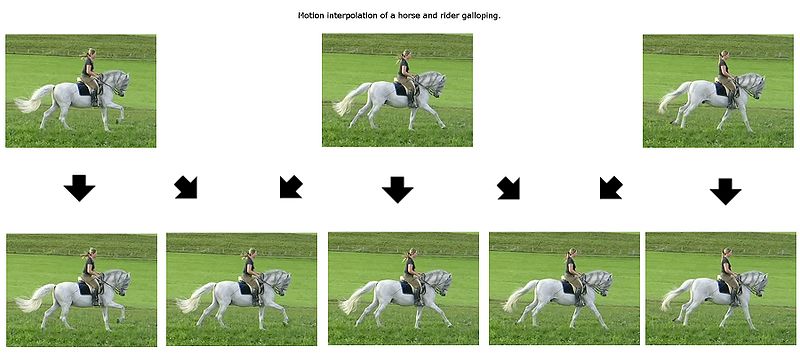Motion Interpolation
Posted: 25 May 2008 04:57
VLC is is an amazing piece of software, but it is missing a type of video processing that makes a significant difference in playback quality: "Motion Interpolation".
Motion interpolation improves the playback quality of just about ANY video file by increasing the number of frames displayed per second. These extra frames are created by blending or shifting two existing frames, increasing the FPS from 29.9 to 60.

Video is noticably smoother to watch; and I have recently become a fan of this type of video processing. As any gamer would agree, there is a startling difference playing a video game at 30fps vs 60fps; and this difference is distinctly seen in the playback of motion interpolated video. You can see the difference for yourself for free by using http://www.crystalplayer.com/home/home/ ... ype=cp_pro (Remember to enable "Motion Morphing" in the options menu).
I am currently using crystalplayer as my main OS movie player, but it suffers from codec limitations AND KEEPS CRASHING!
Would it be possible for this feature to be added to VLC?
Please see http://en.wikipedia.org/wiki/Motion_interpolation for more information on this technique, and http://www.crystalplayer.com/cp/?feature=multisampling for a graphical example.
Cheers!
Motion interpolation improves the playback quality of just about ANY video file by increasing the number of frames displayed per second. These extra frames are created by blending or shifting two existing frames, increasing the FPS from 29.9 to 60.

Video is noticably smoother to watch; and I have recently become a fan of this type of video processing. As any gamer would agree, there is a startling difference playing a video game at 30fps vs 60fps; and this difference is distinctly seen in the playback of motion interpolated video. You can see the difference for yourself for free by using http://www.crystalplayer.com/home/home/ ... ype=cp_pro (Remember to enable "Motion Morphing" in the options menu).
I am currently using crystalplayer as my main OS movie player, but it suffers from codec limitations AND KEEPS CRASHING!
Would it be possible for this feature to be added to VLC?
Please see http://en.wikipedia.org/wiki/Motion_interpolation for more information on this technique, and http://www.crystalplayer.com/cp/?feature=multisampling for a graphical example.
Cheers!